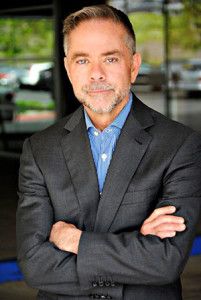Dear Fellow Alumni, I would like to take a moment of your time to consider the ways in which alumni can play an active role in supporting the George Washington University (GW) School of Medicine and Health Sciences (SMHS) community and give back to the school.

I can attribute much of my career success to my years at SMHS. Like most of my classmates, I came to medical school with an inherent drive to strive, to contribute, and to help people. I knew where my vision and my values were leading me, but it was my experiences at SMHS and studying in Washington, D.C., with the school’s cultural diversity and the city’s multinational nature, that got me there.
From the moment I arrived on campus, my instructors and professors were phenomenal. Members of the Class of 1993 all felt that way. I recall talking about it often. We were very fortunate and proud to be at GW, receiving such a quality education. When you are a recent graduate, you’re eager to get out into the world, hone your skills, and advance your training. You aren’t ready to think about things like legacy. As for me, I was busy starting my family and launching my practice. I wasn’t in a position when I was younger to think about giving back financially. To alumni in the early stages of your career, consider offering your time — by mentoring students entering the residency interview process or talking to prospective students about your experiences at GW — as a means of contributing to your alma mater. As time goes on, however, your thoughts start to look to the bigger picture. You might begin to reflect on those opportunities that you had, and start to think about how you can help.
I can look back and say there were a handful of events in my life that changed everything. One of those moments for me was receiving financial assistance through the Legacy Fund. You want to be respectful of those pivotal moments and afford similar opportunities for others. The cost of medical school continues to rise. The mean debt load facing a medical student attending a private institution is more than $206,000, according to the Association of American Medical Colleges. That’s why I’m helping to provide an opportunity for those who have the academic potential, but otherwise couldn’t afford tuition and all of the other expenses that go with being a medical student.
I invite you to consider taking a more active role in your SMHS community, in any way you can, by supporting GW students and the future of medicine.
Sincerely,
Brian Acacio, MD ’93
Medical Director
Acacio Fertility Center
Laguna Niguel, California



